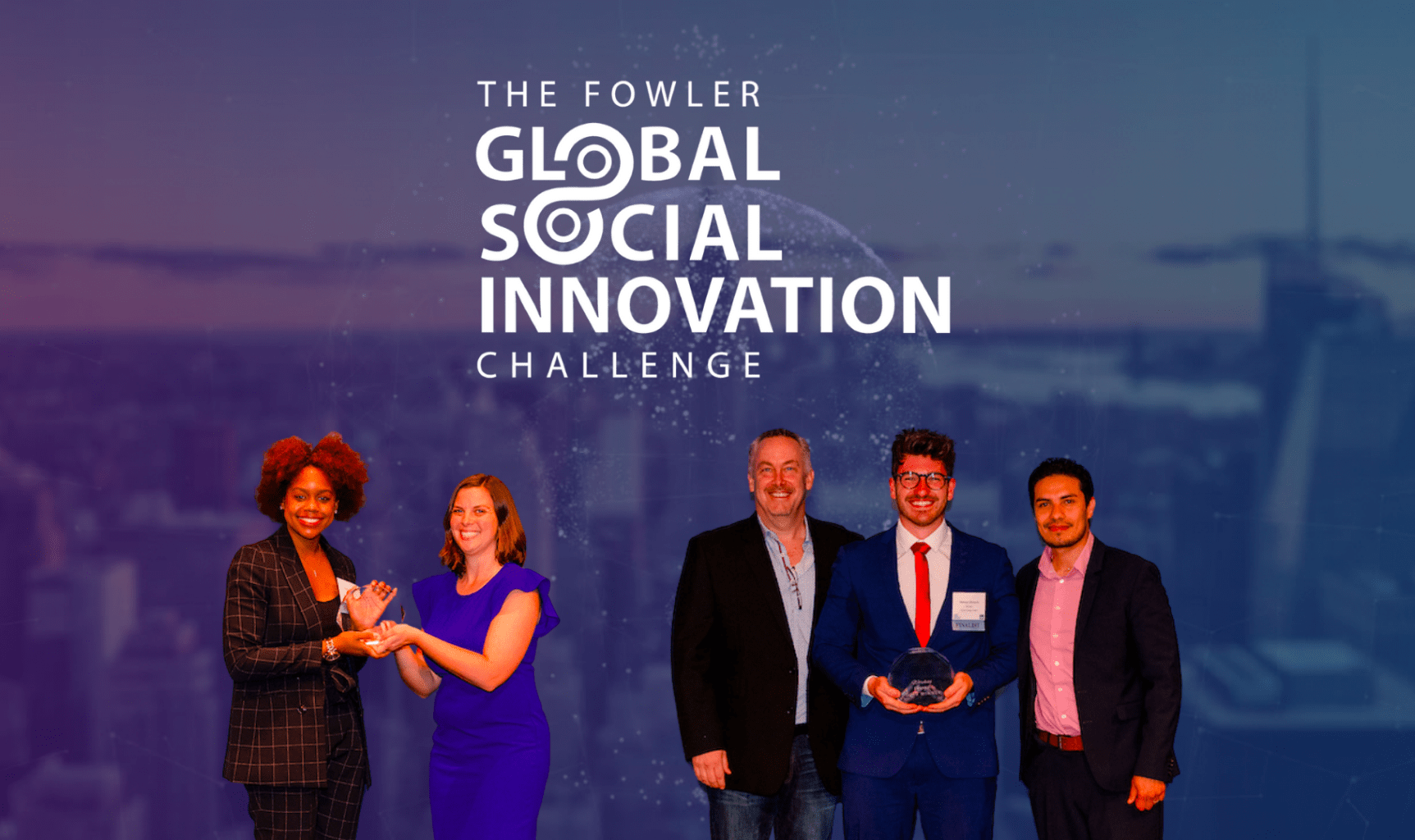Student social innovators with inspiring ideas ranging from ecological bricks made from plastic waste to programs that create meaningful, one-on-one connections between youth and older adults competed virtually June 11 to win a share of more than $60,000 in seed funding at the Fowler Global Social Innovation Challenge (Fowler GSIC) Global Finals.
This is the first time that St. Thomas has hosted the event, a joint venture with the University of San Diego (USD) designed to increase the scope and scale of social entrepreneurship ecosystem at their respective universities and beyond. The Schulze School of Entrepreneurship at the University of St. Thomas and the Center for Peace and Commerce at USD alternate hosting the Global Finals each year.
“The Fowler GSIC is for the trailblazers, the doers and the dreamers. Never has this mindset been more relevant than in these current times,” said Laura Dunham, associate dean of the Schulze School of Entrepreneurship. “This competition is important to expanding the social innovation movement.”
Each team in the multi-round competition leading up to the Global Finals engaged with one or more of the United Nations 17 Sustainable Development Goals, ranging from ending hunger by promoting sustainable agriculture to achieving gender equality, building resilient infrastructure, combating climate change, and providing access to justice for all.
Students from 15 countries and 28 universities competed in the Global Finals. All global finalists placed among the top two teams at their respective universities. The St. Thomas teams who competed in the Global Finals, Auris AI and LABLE, both sought to empower individuals – clinicians and people living with disabilities, respectively.
The winners included:
- Changemaker Award winner ($22,000) – Seedloans, University of Oxford
- Changemaker Award second place ($10,000) – Big & Mini, University of Texas at Austin
- Changemaker Award third place ($5,000) – Hempress Hygienics, San Diego State University
- Women Innovators Award ($1,000) – Govuka, Duke University
- Diversity, Equity and Inclusion Award ($1,000) – Meraki, CETYS Universidad - Tijuana
- Audience Choice Award ($1,000) – HBN, University of San Diego
- Additional prizes of nearly $20,000 were given away to runner-up teams in the Changemaker and preliminary pitch round as well as specials prizes.
The program provides an unparalleled opportunity for student social entrepreneurs to join a network of global innovators while competing for vital seed funding. Students not only are able to showcase their own outstanding ideas, but they can also listen and learn from peers from every corner of the globe. In addition to pitching to industry leaders and receiving valuable feedback, participating teams take part in panel discussions and workshops on topics ranging from building a board of advisers to the role social businesses can play in diversity, equity and inclusion.
Stefanie Lenway, dean of the Opus College of Business, is grateful to Ron and Alexis Fowler for making this global social entrepreneurship competition possible. The competition was established in 2011 by the University of San Diego as the Social Innovation Challenge. To date, more than $500,000 in seed funding has been awarded to the winning teams. Since 2011, 2,500 social entrepreneurs have had the opportunity to get feedback on their ventures from leaders in both the private and nonprofit sectors. In 2019, with the generous support of Ron and Alexis Fowler, the challenge was renamed the Fowler Global Social Innovation Challenge and a collaboration between the University of San Diego and St. Thomas was launched.
“The Schulze School of Entrepreneurship and the Opus College of Business is honored to partner with the Center for Peace and Commerce at the University of San Diego, a strong ally in higher education social entrepreneurship programming,” Lenway said. “In addition to highlighting solutions to societal challenges, the Fowler GSIC widens the circle of impact for both universities by helping social entrepreneurs from around the world sharpen their business plans, thereby increasing their chances of success and contributing to the common good.”







